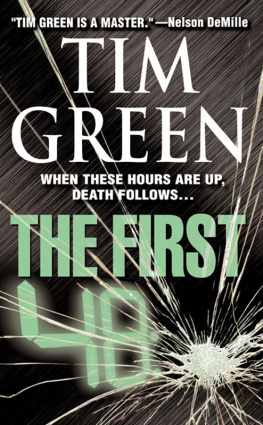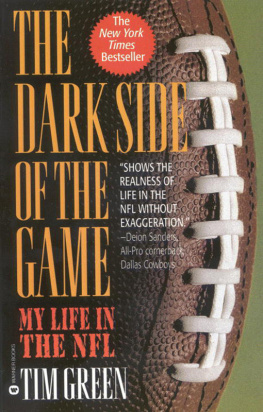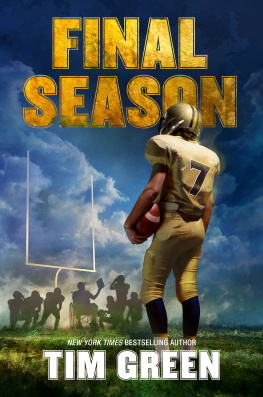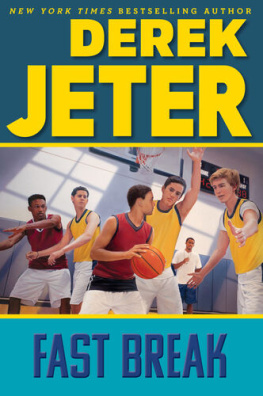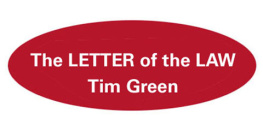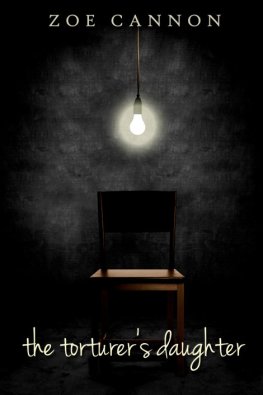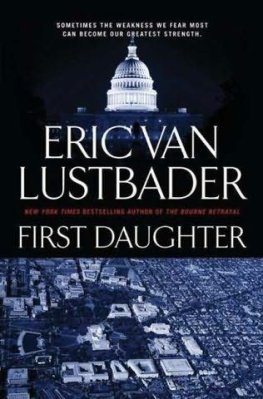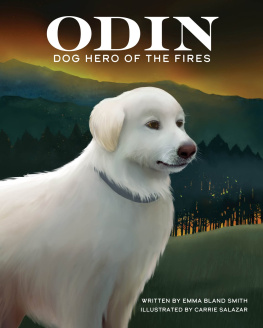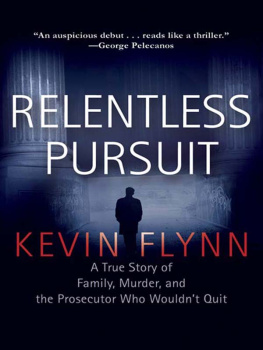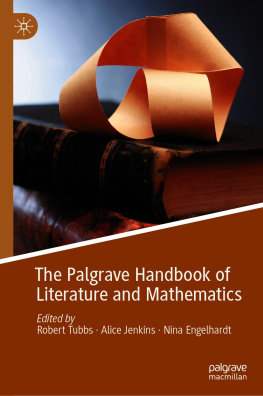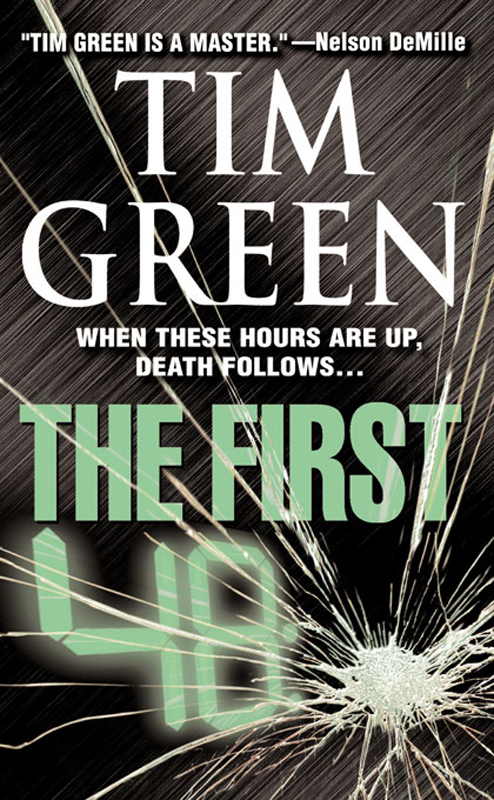Copyright 2004 by Tim Green
All rights reserved.
Warner Books, Inc.
Hachette Book Group, USA, 237 Park Avenue, New York, NY 10017
Visit our Web site at www.hachettebookgroupusa.com
First eBook Edition: February 2004
ISBN: 978-0-446-50486-7
Fiction
Ruffians
Titans
Outlaws
The Red Zone
Double Reverse
The Letter of the Law
The Fourth Perimeter
The Fifth Angel
Nonfiction
The Dark Side of the Game
A Man and His Mother: An Adopted Sons Search
For my Illyssa,
because the day I met you
was the best thing that ever
happened to me.
Some of the best things in this book, and the book itself, couldnt have been without the help of others: my agent, Esther Newberg; my editors, Rick Wolff and Sara Ann Freed; and my parents, Richard and Judy Green, for their careful reading and constructive criticism; my friends in the Syracuse Police Department, Inspector Michael Kerwin and Detective Pete Patnode, for their endless patience in answering my questions; Exec Air manager Mark Germia and chief pilot John Leary; Pat Scova of the Valhalla (N.Y.) Town Clerks Office, for helping a stranger; and all the people from my Warner Books family, including Larry Kirshbaum, Maureen Egen, Jamie Raab, Chris Barba, Dan Ambrosio, Mari Okuda, Flamur Tonuzi, and Tina Andreadis.
I thank you all.
In addition, once again, a very special thanks to my brother in words and my particular friend Ace Atkins.
A Special Tribute to the Memory of Sara Ann Freed
In June 2003, Sara Ann Freed, my coeditor and friend, left this world much sooner than she should have. For those of us at Warner Books who knew her, a light went out, but we will always remember her easy smile and the warmth she brought with her to share wherever she went.
Sara Ann, you will be sorely missedbut never forgotten.
I sometimes think that all you tell me of knighthood, kingdoms, empires and islands is all windy blather and lies.
Sancho Panza
Don Quixote, Book 1, Part 15
H is name was Nobody. Nobody Jones. Nobody Smith. His passport and cruise ship ticket said Mott, a name hed found on a bottle of apple juice. You could do such things without much effort when you knew the right people and you had the money. Official documents and tickets were only what you told people you were. He liked being Mr. Nobody. Especially Nobody on a vacation.
On the third day, theyd cruised out of Jamaica and headed over to Grand Cayman. He spent most of his time on deck by the pool, watching the women slather themselves with suntan oil and drink funny little drinks with umbrellas. There was nothing like this in Ukraine. This was like Mars.
But now he had a feel for it all. He knew the ship. He knew the people, their habits, and the way they talked to one another. There was a group of twenty-something men who sat around a glass table under the eaves of the bar playing a drinking game they called quarters. He had practiced in his cabin, bouncing his own quarter off of the small bathroom vanity and into his drinking glass.
There was an empty chair. He bought two pitchers of beer at the bar, and standing there in his flowered shirt and khaki shorts, he asked if he could play.
They looked at him, grinning, red-faced from too much sun and too much drink. Two laughed out loud. One grin turned into a frown.
Sure, someone said.
He plopped down the pitchers in the middle of the others. Beer sloshed up over the lip of one and spilled into the swill that already lathered the tabletop. He sat down and adjusted his straw hat. He stroked his thick mustache, and the game began again. Quarters bounced off the glass. Some went awry, finding the deck. Many plunked into the drinking glass full of beer and they shone brightly from the bottom amid the swirl of bubbles and golden liquid.
You had to point with your elbow, or you were the one who had to drink. He learned fast though, and soon his own dark hairy elbow was flashing around the table, making the others drink. There were groans and a few cheerful curses. He flagged a waitress for four more pitchers and then lost his turn on purpose so as not to hog the game.
The laughter grew hot, like the sunbaked wood beneath his feet. They began to call him the Russian Bear. He had to roll back a sneer. He was a Soviet from Ukraine. Hed told them that. Hadnt he shown them the CCCP lapel pin stuck to the collar of his shirt? Leave it to a handful of American jackasses not to know the difference.
It was his turn again. He reached into his pocket and fingered the little wax bead until it broke. Then he bounced the quarter into glass after glass, sending beer all around the table.
It was half an hour before a tall thin man with bad skin and a shock of short blond hair popped up out of his seat, turned, and vomited in the general direction of the pool, spattering three rows of deck chairs. Screams erupted, and two of the people in deck chairs got sick as well.
The Soviet stroked his wiry mustache and left the table in the midst of the uproarious howls of his new friends. He climbed the stairs to the deck that overlooked the bar and pool. There was a chair by the railing with no one in it. He removed the soggy towel from its back and sat down to watch. Within a half hour, two more young men lurched to their feet, also sick. The game broke up, and he went to the casino.
The next day the ship stopped at Cozumel. The Soviet was in the casino again when the fat lady next to him at the blackjack table turned green, clutched her stomach, and hustled for the bathroom. Later, a farmer from Ohio lost his ham sandwich at the roulette wheel and the casino shut down amid the twittering laughter.
That night less than half the vacationers showed up for dinner. People stared accusingly at one another and if someone coughed, heads turned and hands gripped the tables edge. Waiters in cheap tuxedos shot nervous glances at one another and spoke in subdued tones about the three-layer chocolate cake. The Soviet drank a good deal of the tart cork-tainted Chardonnay and grinned around at the others, who sat at the half-empty table picking at their food.
On deck at 2 A.M., a helicopter sputtered secretly down out of the dark sky. Medivac. Two gurneys were hurried out across the deck. In the flashing lights of the helicopter, he could see the wincing faces. Tubes in their noses. IV bottles swinging above them. Nobody knew that they probably wouldnt make it. Word spread fast. By 6 A.M. there was an angry crowd outside the bridge demanding that the ship return immediately to port.
Later that day, as they were pulling into Miami, a line snaked in front of the ships hospital, all the way out onto the deck. People covered their faces with T-shirts and makeshift masks. A dozen people were trampled by the crowd pushing to get down the stairs and off the ship. The Soviet waited patiently, then tugged the wrinkles out of his flowered shirt and marched ashore with his leather briefcase, trying not to smile at other peoples misfortune. But who could have blamed him for smiling? After all, it had been a very fine vacation.
T om Redmon didnt need to hear more, but he knew the couple needed to talk. Beneath the desk, he clenched and unclenched his hand, squeezing the tennis ball, trying to be patient. Finally they finished. The mother was sniffing and dabbing her eyes with a napkin from McDonalds. He looked past them and out through the old glass to a bright locust tree, wavy and distorted.
In his office, the paneling of one wall sagged under the weight of diplomas. A 1996 calendar of a German castle high on a mountaintop hung by a pushpin. In a wood frame was a cheap print of van Goghs

